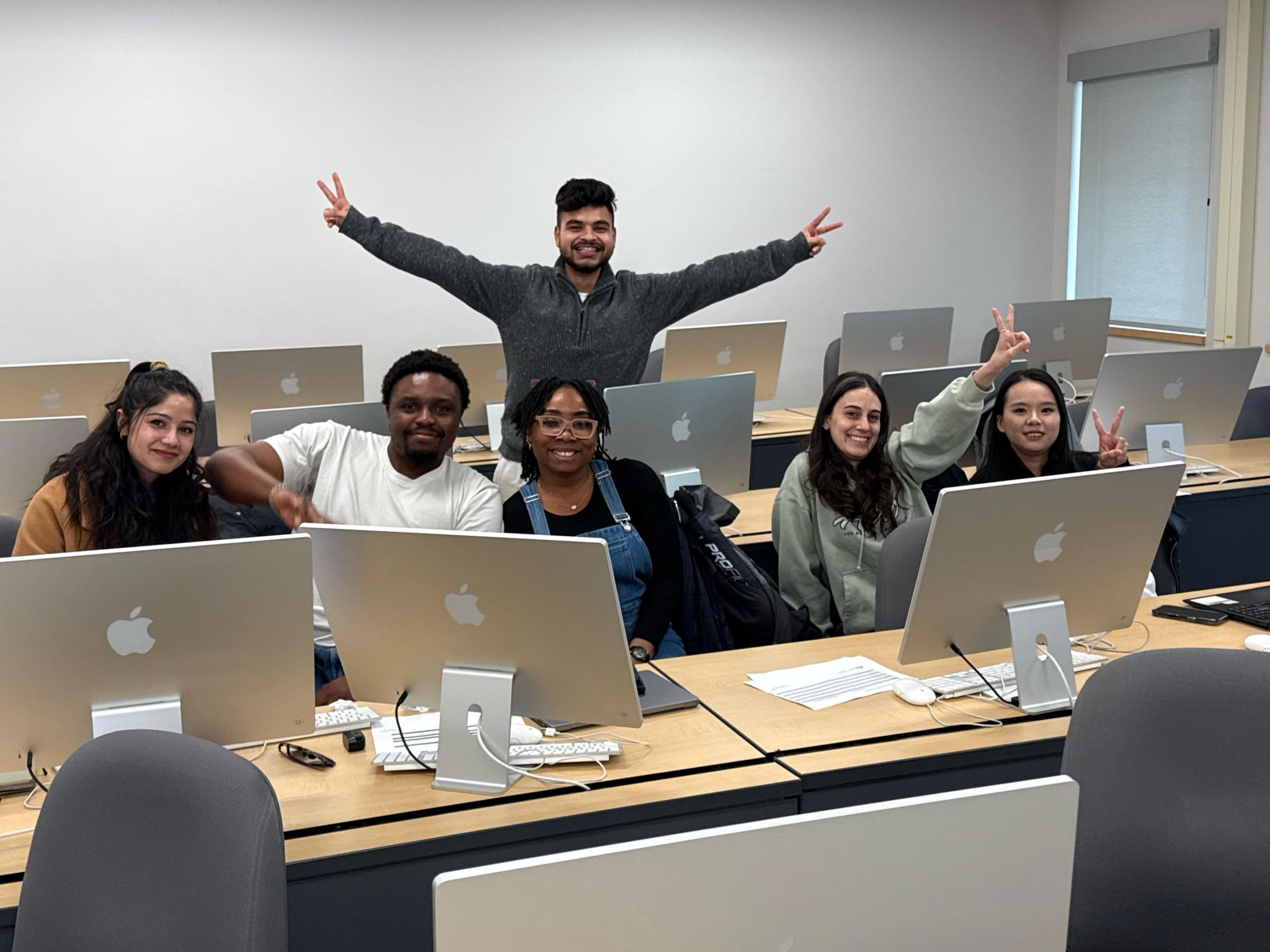Fanshawe College students from the User Experience Design program won their “Zone” at the CICan National Skills for Success Hackathon.
Post-graduate students Naomi Ibharia, Joshua Okoh, Rita Kassabian, Chinmay Bhaise, Carol Chen and Suman Kumari Bohara took home the gold.
“It was amazing to see what they had learned put into action in real time. Watching them work together – their communication, their focus, and their teamwork – was truly impressive,” said Justin Brunner, coach and program coordinator. “It reminded me of the kind of collaboration I’ve seen in the workplace.”
The two-day event, hosted by Colleges & Institutes Canada, brought together students and recent graduates from 16 post-secondary institutions to learn about the Skills for Success (SFS) program, a Government of Canada initiative which provides training, resources and funding to help Canadians advance their careers through workplace skills development.
As part of the competition, students explored design solutions for the SFS online tool – an interactive assessment, which helps job seekers identify gaps in their resumes, industry trends and upskilling opportunities at CICan member institutions.
Coach and professor Natasha Côté-Khan said the hackathon presented students with “How might we” statements rooted in accessibility, equity and inclusive design – issues that are core to their curriculum and values.
“To see our students rise to that challenge and deliver a winning solution grounded in heuristics, Web Content Accessibility Guidelines (WCAG) and information architecture is incredibly validating,” she said. “It shows they’re not just learning theory but they’re ready to lead with purpose.”
The competition also measured how students engaged in innovative thinking and how they used their collaboration skills.
Côté-Khan added the victory showed the importance of designing with intention as they weren’t just building a user interface, they were solving for equity. In particular, they designed with empathy and considered diverse user needs.
“It’s also a reflection of how we teach: we centre mentorship, social responsibility and inclusive innovation,” she said. “This win is a symbol of the kind of designers we’re helping to shape – ones that are capable, thoughtful and committed to making meaningful change.”
For any media inquiries, please reach out to mediainquiries@fanshawec.ca
Recent News
-
February 23, 2026
Ramadan 2026
Read StoryThe blessed month of Ramadan began on February 17, 2026, and Fanshawe College reaffirms its support... -
February 19, 2026
Registration open for summer PTS courses and badges
Read StorySummer 2026 part-time studies Registration for courses and badges is now open! Ready to level up... -
February 17, 2026
Dell Tech Days 2026 sale for students
Read StoryUpgrade and save with exclusive student offers This is the perfect time to upgrade your tech...
Recent News
-
May 8, 2025
Construction Delays
Read StoryDue to ongoing construction in the area, there may be delays in reaching our clinic. We kindly ask... -
April 15, 2025
New Spring Schedule
Read StoryWe’re excited to announce that the spring schedule is now available on our website as we transition... -
December 16, 2024
2025 Pricing Adjustment
Read StoryEffective January 1st, our fees will increase to $30 per treatment. We understand that this is a...

